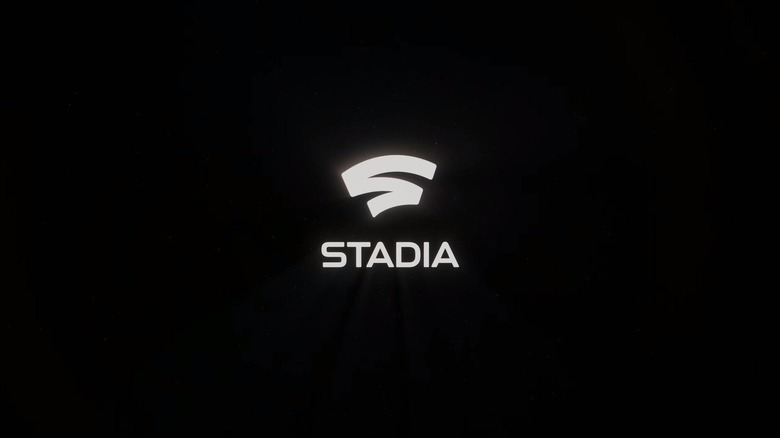Google Announces Stadia, A Platform For Streaming Games
Google CEO Sundar Pichai called it "the worst-kept secret in the industry," and he was right. Today at GDC 2019, Google confirmed that it is launching a game streaming platform, and its name is Stadia.
The announcement, in case you couldn't tell, wasn't a total shock. Google ran a test of something called Project Stream toward the end of last year, streaming Assassin's Creed: Odyssey to countless testers at 1080p and 60 frames per second. And for the past few weeks, rumors were flying around that Google had larger ambitions for Project Stream, further solidified by the fact that the company planned to attend GDC 2019. We got an email minutes before the stream started (sent to Project Stream participants) teasing something related to the test, and it was clear at that point Google was devoting its keynote to its streaming service. We just didn't know what it was called.
Stadia? We'll have to absorb it and let you know how we feel about the name later.
So, what are the benefits of Stadia? According to Google, it's about what you'd expect. The ability to stream a game in high quality means you can have a native-type experience instantly without having to wait for a download. Games can also be played on pretty much any platform, and Google showed this off in real time, playing Assassin's Creed: Odyssey on a Chromebook, then a phone, then a PC, then a tablet, and finally, on a TV.
Google is also launching a special controller for the Stadia service, appropriately called the Stadia Controller. The gamepad — thank heavens — looks nothing like that blocky mess of a patent that popped up the other day. It actually looks more akin to a Wii U Pro Controller (edit: actually, more like a PlayStation controller — at least the sticks are on the bottom), with its side-by-side analog sticks and button layout. Will you want to use it over any of the other controllers already out there? That's debatable. But it's a relief that Google made something that looks somewhat comfortable.
On the development side of things, Stadia has support from two of the largest game development engines — Unreal and Unity — as well as a host of middleware solutions. So it looks like developers will have plenty of support to build their games out on Google's platform. And interestingly, Google seems to have solved the issue of multiplayer support, too. Google is inviting developers to host servers on Stadia, keeping everything in-house to make sure Stadia players aren't put at a disadvantage due to latency.
Google showed off some other cool Stadia-specific features, too. Something called Stream Connect showed how Stadia could handle what's often called couch co-op — by giving each player a separate Stadia instance, ensuring the game's performance won't take a hit like it might on console. Game State makes exact moments in a player's game sharable, so they can post a link and let others jump in to experience the same thing instantly. YouTube Gaming figures to play a big role in Stadia, enabling streaming, video sharing, and quick access to multiplayer for content creators and their viewers. And Google Assistant will be available at any moment — accessible via a dedicated Stadia Controller button — to look up walkthroughs, search for games, and more.
Finally, we got an idea of what former EA and Ubisoft veteran Jade Raymond will be doing at Google. She'll be leading Stadia Games and Entertainment, a new division dedicated to creating first-party games for Google's platform, as well as working with third-party studios to bring their projects over. Google is clearly going all-in on this.
Now here's the big question — when is Stadia launching? Google announced that we'll see Stadia sometime in 2019, but we don't have anything more specific than that. Still, this is a very big deal. Google is — for all intents and purposes — launching a new platform much like Microsoft or Sony might with a new Xbox or PlayStation. And it has a lot of the industry behind it, both in terms of its supporting partners and the staff its hired onto the Stadia team. If Google can deliver something that works consistently, and that same something can outclass what existing hardware can do, we might not have to look any further than this year for the streaming future.
We'll be watching this one very closely.

